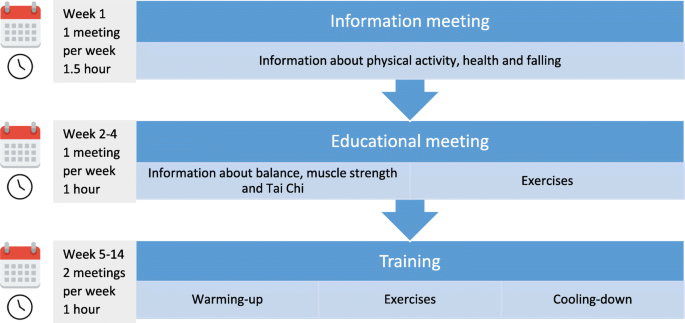The Definitive Guide to Dementia Fall Risk
The Definitive Guide to Dementia Fall Risk
Blog Article
Some Of Dementia Fall Risk
Table of ContentsAn Unbiased View of Dementia Fall RiskThe Greatest Guide To Dementia Fall RiskThe 9-Minute Rule for Dementia Fall RiskOur Dementia Fall Risk IdeasDementia Fall Risk Fundamentals Explained
You might be anxious because you have actually had a fall prior to or because you have actually discovered you're beginning to feel unstable on your feet. You might have seen modifications to your wellness, or just seem like you're slowing down a little. Whatever the factor, it isn't uncommon to end up being mindful and lose self-confidence, and this can stop you doing things you made use of to do and make you feel a lot more isolated.If you've had a loss or you've started to really feel unsteady, tell your medical professional even if you feel great or else. Your doctor can inspect your equilibrium and the way you stroll to see if improvements can be made. They might be able to refer you for a drops risk analysis or to the drops avoidance solution.
This information can be gotten via interviews with the individual, their caregivers, and an evaluation of their clinical records. Begin by asking the individual about their history of drops, consisting of the frequency and scenarios of any kind of current falls. Dementia Fall Risk. Inquire regarding any type of flexibility problems they may experience, such as unsteady or problem strolling
Conduct a comprehensive evaluation of the person's medicines, paying certain focus to those recognized to increase the risk of falls, such as sedatives or medications that lower blood pressure. Figure out if they are taking several medicines or if there have actually been current modifications in their drug routine. Review the person's home setting for possible threats that can raise the threat of drops, such as bad illumination, loose rugs, or lack of grab bars in the restroom.
All about Dementia Fall Risk
Overview the individual through the loss danger evaluation kind, describing each question and taping their reactions accurately. Ensure that the individual recognizes the purpose of the evaluation and really feels comfy giving sincere responses. Determine the overall threat rating based on the feedbacks offered in the analysis type. Determine the person's risk classification (low, tool, or high) based on the overall rating and the existence of automated high-risk standing elements.
Routinely keep an eye on the person's development and reassess their threat of drops as required. Give recurring education and support to advertise safety and reduce the risk of falls in their daily living activities.
Numerous research studies have revealed that physical treatment can assist to minimize the danger of falling in grownups ages 65 and older. In a new research (that considered falls danger in women ages 80 and older), scientists determined the financial impact of selecting physical treatment to protect against drops, and they found that doing so conserves $2,144, including all blog the concealed costs of your time, discomfort, missed life events, and the bucks spent for solutions.
Everything about Dementia Fall Risk
Evaluating your equilibrium, toughness, and walking capability. A home security analysis. Based on the evaluation results, your physical therapist will certainly make a plan that is tailored to your certain demands.
Older grownups who have difficulty walking and speaking at the very same time go to a higher risk of falling. Dementia Fall Risk. To assist boost your safety and security throughout daily activities, your physiotherapist may make a training program that will certainly challenge you to maintain standing and strolling while you do an additional job. Examples include walking or standing while counting in reverse, having a conversation, or bring a bag of grocery stores
Your physiotherapist also can recognize which activities you must prevent to stay risk-free. Community-based falls prevention programs aid people to: Lower their concern of dropping. Establish objectives for boosting their physical task. Make their homes more secure. Work out a lot more to boost their stamina and equilibrium. These programs commonly are led explanation by volunteer trains.
Some Known Details About Dementia Fall Risk

Measles, or rubeola, is an extremely infectious, acute viral infectious disease triggered by the measles infection. Some people consider measles as simply a breakout and fever that clears up in a couple of days; nevertheless, measles can trigger serious wellness difficulties, particularly in children more youthful than 5-years-old. The very best security against measles is the measles, mumps, and rubella (MMR) vaccination.
Autumns are a common source of injury among older grownups. According to the CDC, in one year alone, fall-related injuries added to over $50 billion in medical prices (Dementia Fall Risk). In healthcare facility setups, older adults are at specifically high threat of drops due to the fact that their reduced wheelchair from being confined to a room or bed.
The Definitive Guide to Dementia Fall Risk

She has a case history of seizure problem and hypertension. She is getting an IV mixture and taking Gabapentin and Lasix. She has no background of falls, Web Site her gait is consistent, and she invalidates with no issues. The previous nurse states that she asks for aid to the bathroom when she needs to go.
Examples of typical autumn interventions/measures include: Guaranteeing a client's vital things are within reach. Past comprehending exactly how to utilize the Johns Hopkins Fall Risk Assessment Device, it's crucial that centers integrate its use right into an extra detailed autumn prevention strategy.
Report this page